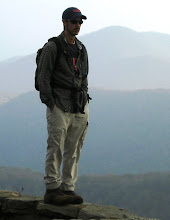Hillbillyland by JW Williamson is a very academic and heady book that analyzes the relationship between Hollywood's portrayal of mountain people and the acceptance of the general public of the image that was perpetuated. A lot of time is spent analyzing movies from the early 1900's to modern day films showing reoccurring themes of man's domination of nature and that civilization and society as the proper place for man.
Some very interesting theories are presented about society in general believing it is OK to laugh at the primitive life of mountain people, because it reassures our decision to live in a modern society. Movies will often portray an individual or group of outsiders ("civilized" people) entering into a type of forbidden wilderness (wilderness earmarks "dangerous" or interestingly, unnatural), encounter some sort of trouble with "natives", overcome it (or them), and return to the normality of civilized life. This is an continuous theme in movies like Deliverance, Up the River, A Face in the Crowd, etc.
Another interesting idea is that when a man becomes a "slave" to wages, he losses his virility. Say what you will about hillbillies, they had something none of us have, they called no man master! Their only use for money was to pay property taxes on the land they lived and worked on. The book delves into many ideas that are frankly, a little too academic for me. One that continually struck me was about these movies being a mirror. A reassurance that living in cities is preferable to a more primitive life. The ability to have a job to pay for "stuff", to make more money to buy more "stuff", is a preferred existence. We can laugh because we ALL have hillbillies somewhere in our family trees and be pleased that we have "evolved" beyond that type of existence. But to what gains?
I began reading this book as research for why society thinks people who live in the Southern Appalachians are a bunch of inbreeding idiots, instead, I got something that had a little more food for thought in it. Some of my initial questions were answered, but many more questions were left. Mainly about my place in society and why I seem to be retreating from it. If you like some deep reading, and don't mind keeping a dictionary handy (this guy uses some pretty big words), I'd give it a shot. Definitely an interesting read, but not a light read at all.
Hey, You!
-
Have you updated your readers? Have you come to visit me at the new place
yet? Happy Friday!Posted in life goes on
16 years ago



No comments:
Post a Comment